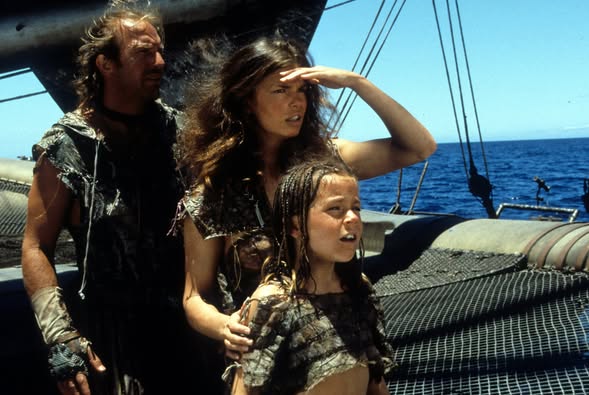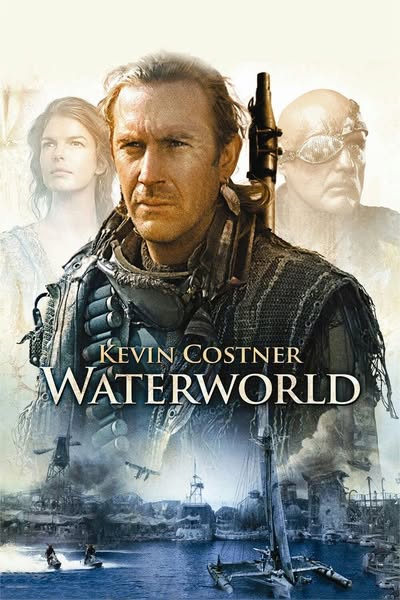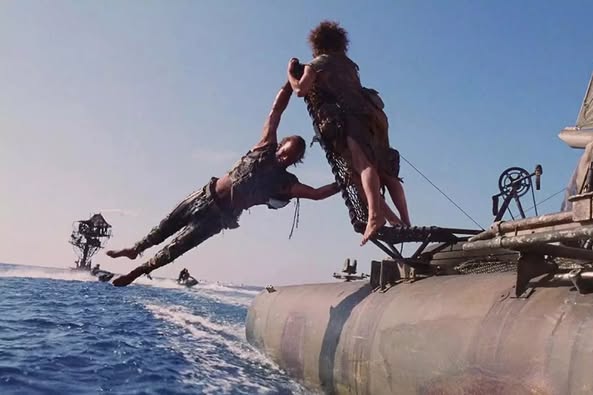Waterworld (1995)

Waterworld (1995) is a distinctive and ambitious post-apocalyptic film that captures the imagination with its ambitious world-building and unique premise. Set in a future where the polar ice caps have melted, resulting in a planet entirely covered by water, the film presents a vision of survival in a harsh and unforgiving environment. This epic production, characterized by its grand scale and adventurous spirit, has garnered a mixed reception over the years, yet it remains a fascinating exploration of human resilience and the will to survive amidst chaos.
The narrative centers around a lone drifter known as the Mariner, played by Kevin Costner, who navigates this waterlogged world on a makeshift catamaran. As he encounters various factions of survivors, including a group led by the ruthless Deacon (Dennis Hopper), the Mariner becomes embroiled in a struggle for resources and the quest for the mythical “Dryland,” rumored to be a place of refuge. The film delves into themes of hope, environmental catastrophe, and the human spirit’s unyielding quest for survival, making it not just a thrilling adventure but also a cautionary tale about ecological destruction.

Waterworld is classified as an action-adventure film, seamlessly blending elements of science fiction and drama. Its visuals are striking, featuring elaborate set designs and breathtaking water-based action sequences that push the boundaries of what was thought possible in cinematic storytelling at the time. The film’s production faced numerous challenges, including budget overruns and natural disasters during shooting, yet these obstacles contributed to its cult status as a film that, despite its flaws, embodies the spirit of innovation and determination.

The performances in Waterworld are noteworthy, with Kevin Costner providing a compelling portrayal of a reluctant hero. Dennis Hopper’s villainous Deacon adds a layer of menace, embodying the chaos of this new world. The supporting cast, including Jeanne Tripplehorn as a determined woman seeking a better life for her adopted child, enriches the narrative with their diverse perspectives on survival.

In conclusion, Waterworld stands as a testament to the creativity and ambition of 1990s cinema. While it may have faced criticism for its execution, its exploration of survival, community, and the consequences of environmental neglect resonates powerfully, inviting viewers to reflect on the fragility of civilization in the face of overwhelming odds. The film’s legacy endures, making it a unique entry in the canon of science fiction and action cinema.











